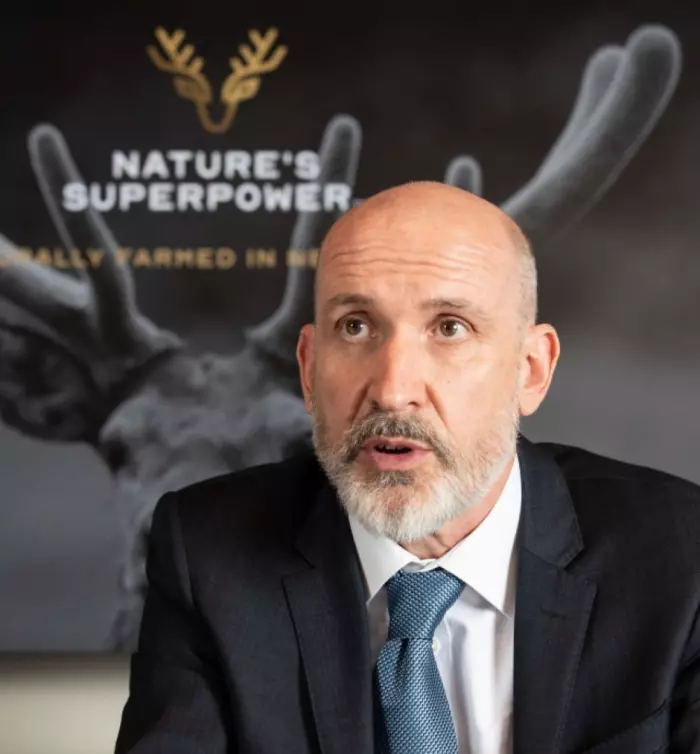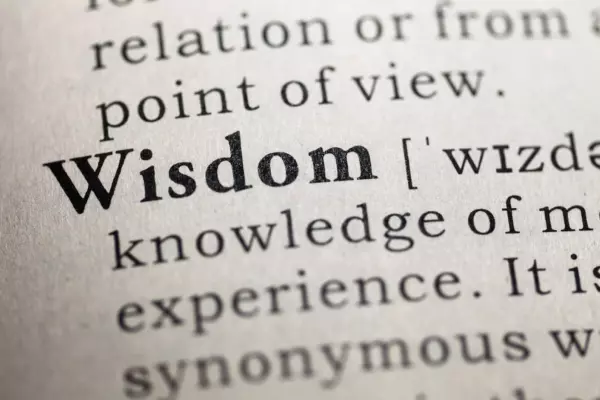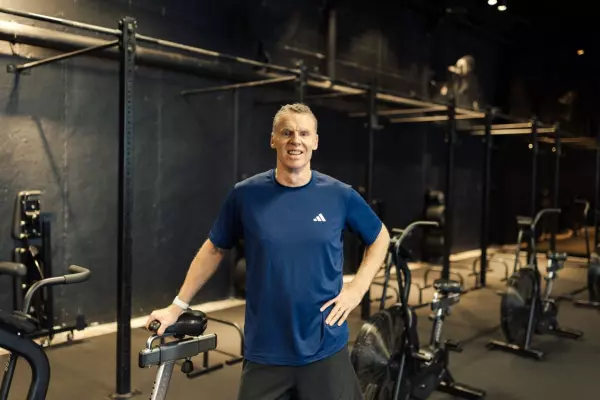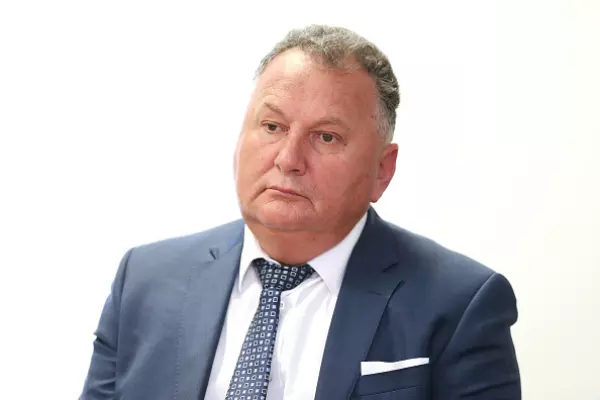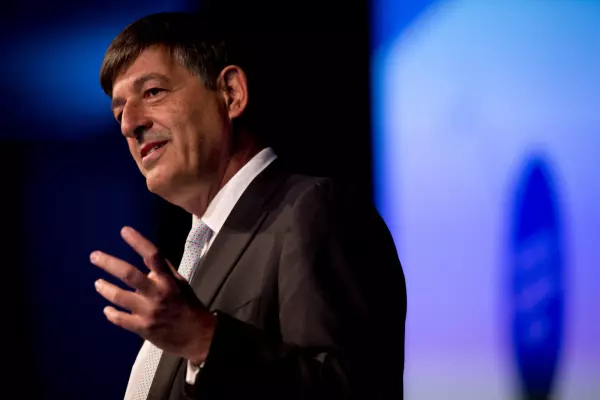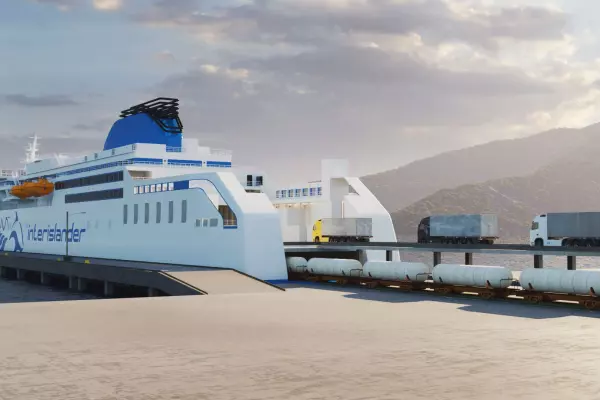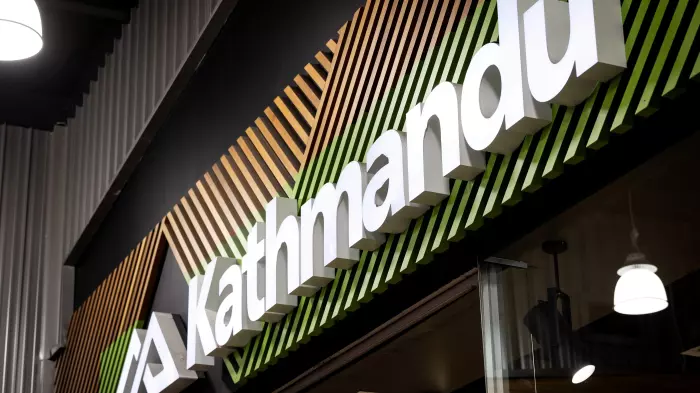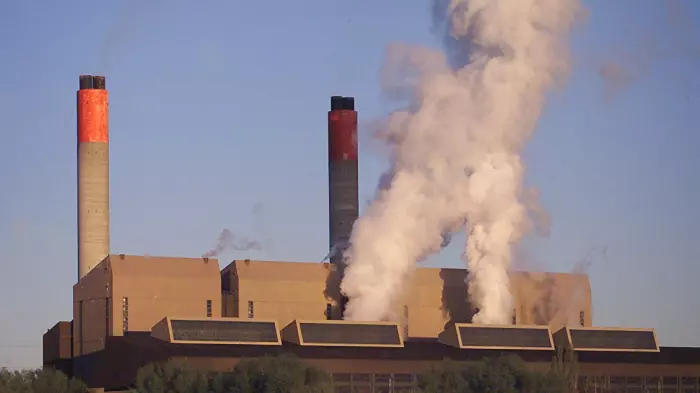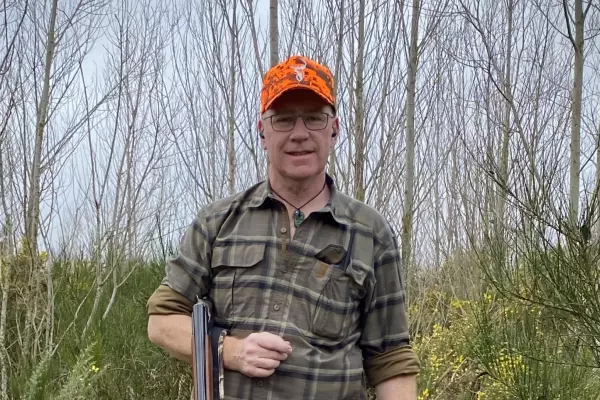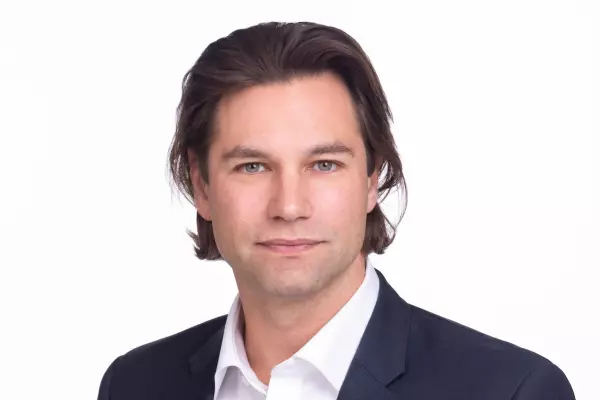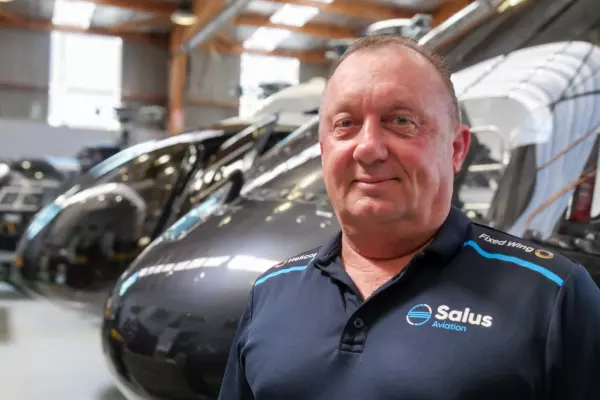New Zealand is the largest exporter of deer meat and products in the world, and Deer Industry NZ – a levy-funded organisation based in Wellington – works with farmers, processors and marketers to promote the sector's growth here and boost its profitability.
Innes Moffat was appointed chief executive in October 2019 after working as manager of DINZ's productivity improvement programme for six years and, before that, venison marketing services manager for nearly nine.
His involvement in the meat industry began in 1996 with the NZ Meat Producers Board as a development officer for the Asian market. From 2001 to 2005, he was based in Belgium as the board's market manager for the Continent, lobbying the European Commission and governments to protect NZ's access to the EU.
An old boy of South Otago High School in Balclutha, he is an honours graduate of the University of Otago and also has a diploma in economics from Massey.
When I was five, I was definitely going to be a farmer, partly because it was all I knew then. My father was a farmer, my uncles were farmers, my neighbours were farmers. I didn't get off the farm much as a child. But why would you? Outdoors, working with animals, driving tractors – every five-year-old's dream.
I still say I don't know what I want to do when I grow up. But I guess coming through the reforms of the 1980s as a teenager, farming was fairly tough and led a few of us to look for alternative career paths.
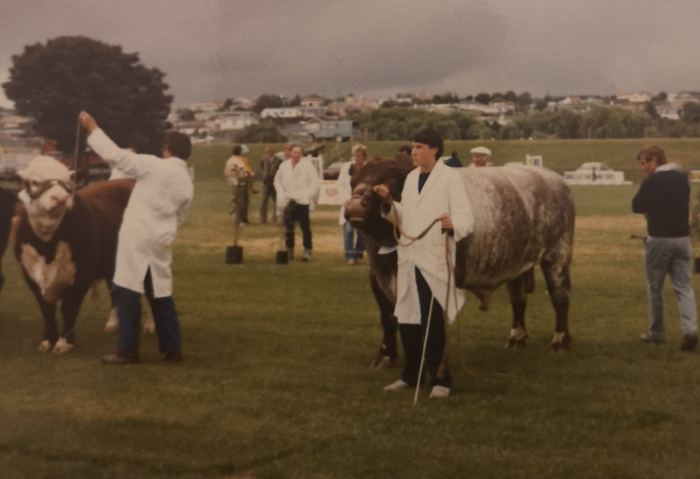
A young Innes Moffat competing at the South Otago Agricultural and Pastoral Show. (Image: Supplied)
My parents were always very keen on me taking a wide view and certainly encouraged me to look outside of farming. There was no expectation on me to go home and take over the farm; they wanted me to finish off my education and then go and see what the world had to offer. Then, if I wanted to come back farming, that was an option.
I haven't gone back to farming. There's certainly been an inkling there that I'd like to get back onto the land at some point, but no, I haven't. Farming's still pretty important to me, and to the work that I do and the people I associate with.
The biggest thing I learned from my parents? Having an open mind about what you want to do, and tolerance of different viewpoints.
I've got an honours degree in history and political studies. My favourite era of history? Probably the Age of Reason. It must have been a pretty exciting time over that century or so, when people were really delving into the structure of society and how things could be better for men and women, and radical breakthroughs in the understanding of science and of the natural world around us.
After I graduated from university, I jumped on a plane and had a fun three years in the UK, working on farms and in bars and hotels, truck driving – normal experience. I especially enjoyed working on a farm in North Yorkshire.
I did three stints there over the three years. Salt-of-the-earth people, fantastic countryside. And good beer. I couldn't say that I could keep up with the locals drinking. They had a tolerance that this skinny boy from NZ who was working pretty long hours couldn't quite keep up with.
(The best beer in the South Island, by the way, is Scott's Brewery on Oamaru waterfront. They do a particularly good pale ale, which goes very well with pizza in the sunshine.)
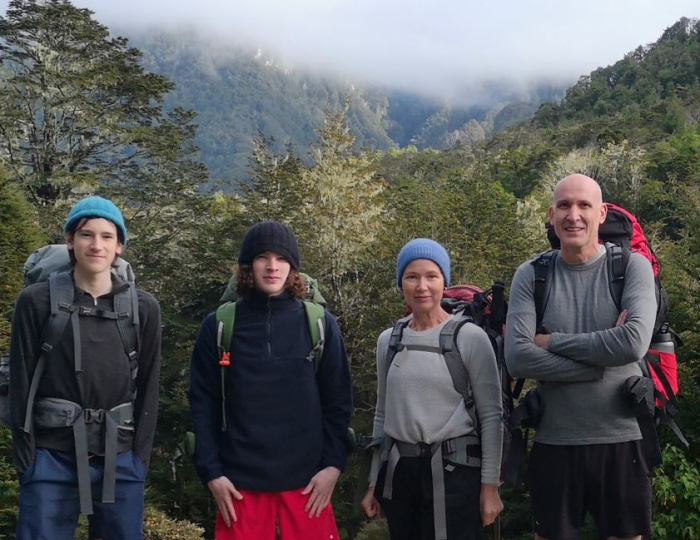
With the family, walking the Routeburn Track. (Image: Supplied)
I came back to NZ after those three years, and came to Wellington with my earnest approach to life and my arts degree, expecting to get snapped up by a government department to do great things for the future.
I didn't get snapped up straight away so I did have the great pleasure of being a historical researcher for what was then the Wellington Maritime Museum. It was good fun rustling around some of the archives and the old records. I have become a party bore by talking about the military history of buying some obsolete coastal defences, which is a fascinating little episode in NZ.
I spent five years with the NZ Meat Producers Board in Asian market development. I got to do things like run the NZ beef stand at the HOFEX Trade Fair in Hong Kong. After that, I must have done something wrong, because they sent me to Belgium to be the trade policy manager.
We were in Brussels for four years and it was actually quite fun, representing NZ's interests in that very important export market for our country.
It was interesting because when I was there – this was in the early to mid-2000s – the Lord of the Rings came out. I'd like to think that NZ is known for other things but the impact that had was really quite extraordinary, as was the advertising promotion that the movie studio put into promoting it.
On one of the tallest skyscrapers in Brussels – it was about 20 to 30 storeys – down one side was a big banner of Gandalf, which was looming over the city. That became people's go-to reference of NZ, which I think we're certainly still benefiting from.
We came back to NZ after four years and I left the Meat Producers Board to go and do something completely different. So, I joined Deer Industry NZ, where I’ve spent the past 18 years in different roles. But I still don’t know what I want to do when I grow up.

Grabbing an opportunity to get out of the office and into the field. (Image: Supplied)
While I like NZ beef and lamb, I do think that NZ farm-raised venison is our premium red-meat product. So being able to represent that, both here in NZ and also in some pretty cool parts of the world, has been quite a privilege.
Venison doesn't have a good reputation in many parts of the world, because it's primarily a hunted product. Venison is a very lean meat, high in iron, so if it's not well cared for and then it's not well cooked, it can give you a unsatisfactory eating experience. But when we're able to serve ours, it’s a revelation to people.
Our industry certainly has changed and it will continue to change. There were a lot more farmers with deer 15 years ago. The industry has drifted south and the farms have got bigger. We've seen the farms down in the hills of the South Island expanding, whereas a lot of land in the North Island has been taken over for other uses.
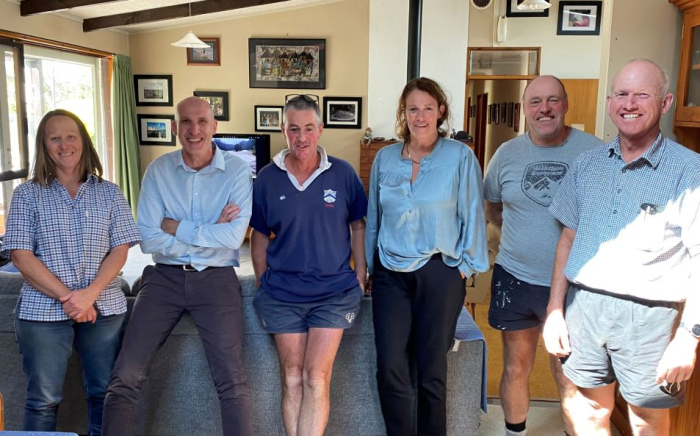
Moffat (second from left) in Hawke's Bay with some of the industry's members. (Image: Supplied)
The best piece of business advice I could give is to ask lots of questions. Talk to a wide variety of people, and let people know what you're thinking, because someone else has probably got the answer. And they may well have done it before. They can save you a lot of time.
Worst piece of advice? Probably the counter to that, which is to stay in your lane.
We probably have venison once a week. I'm particularly a fan of the medallions that you can buy in most good supermarkets. My particular go-to at the moment would be a venison soft taco.
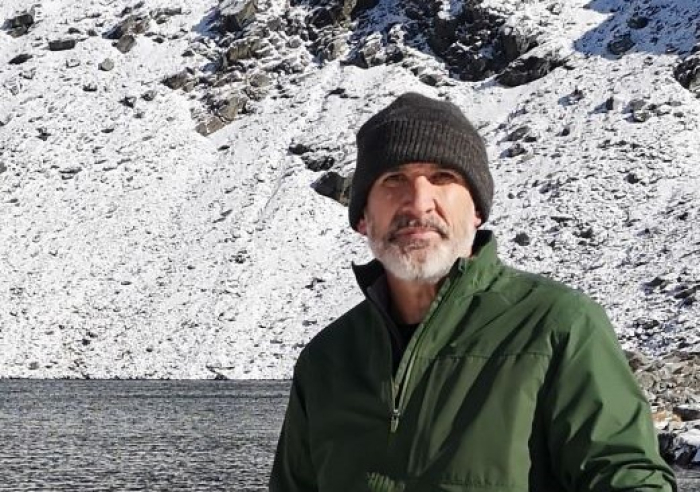
Enjoying some quiet time in the mountains. (Image: Supplied)
Trying to learn a musical instrument is a way of switching your brain onto something else and is a little bit of mental relief when things become a little all-encompassing. I'm told that I'm supposed to say I play the guitar and I've got several chords I can bust out.
I like to buy scuba-diving gear. I learned to scuba-dive off the Wellington south coast many years ago, and I've spent a fair amount of time rolling around in the weeds there. I think Wellington's a fantastic place to scuba-dive.
Scuba-diving is technically challenging, interesting, and it also makes you really appreciate the Pacific, the tropical islands, when you get there. The most important lesson in scuba diving: keep breathing.
As told to Ella Somers.
My Net Worth interviews may be edited for clarity.


